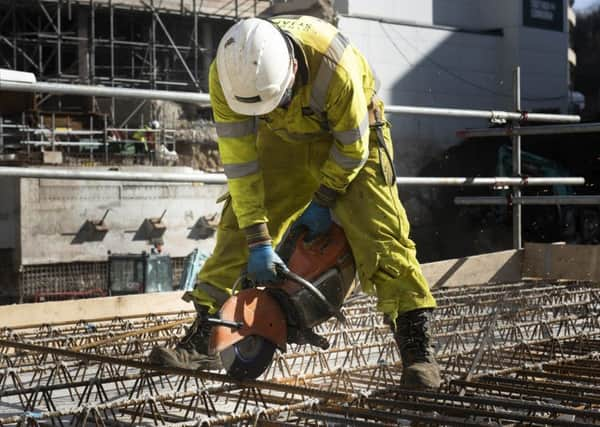Big deals are a vote of confidence in Edinburgh’s economy – John McLellan


Not every day perhaps, but only last month the German pension fund AVWL paid Aberdeen Standard Investments £120m to take over the recently opened block on St Andrew Square, which is home to ASI’s parent company Standard Life Aberdeen and the TK Maxx store.
And in April an office block at the South Gyle which is leased to NHS Scotland was sold for £55m to another Korean business, Hyundai Asset Management.
Advertisement
Hide AdAdvertisement
Hide AdThe Crewe Toll deal sees the un-named Korean investor take control of the site formerly occupied by Ferranti, now home to the Italian defence giant Leonardo which employs 2000 people making guidance systems for, amongst others, Apache attack helicopters.
However, these investments are dwarfed by the £1bn invested in the new St James Centre by Nuveen Real Estate, the investment management arm of Manhattan-based TIAA which manages a fund of some $930bn, one of the biggest financial institutions in the world.
TIAA is an acronym for the Teachers Insurance and Annuity Association, a not-for-profit organisation founded over a century ago by Scottish-born industrialist Andrew Carnegie to provide pensions and financial security for retired teachers and lecturers.
As the St James project nears completion, the Nuveen board met in Edinburgh this week and held a series of meetings to get an overview of the local economy, including a dinner at Edinburgh Castle hosted by the Lord Provost. It’s not unusual for major investors to come and see what they are getting for their money, but they also need to know the investment will continue to deliver and indeed if there are other opportunities.
Advertisement
Hide AdAdvertisement
Hide AdPut together, these deals illustrate the strength of the local economy and the belief from international asset managers that the city offers longer-term stability, which for pension funds means a steady return to meet obligations to millions of retired people who rely on the income.
Investors like Nuveen are the target for the 186-acre Edinburgh 205 site at the airport, until this week known as the International Business Gateway, which has the potential to have an even greater impact on the city’s future than St James.
With Brexit and a second independence referendum on the horizon, predicting Scotland’s political landscape in the next five years or so is virtually impossible in a 3-D chess game in which Brexit, independence and traditional left-right ideologies cut across each other.
But these organisations are looking much further ahead, like the Scotch Whisky industry which in planning 50 years ahead regards current problems as bumps in the road.
Advertisement
Hide AdAdvertisement
Hide AdThe Scottish Fiscal Commission forecast last week that Scottish Government income tax receipts would be a total of £1bn below expectations over the next three years, giving Finance Secretary Derek Mackay an economic migraine as he has to work out whether to increase taxes further (almost certainly) or cut spending.
The SFC’s immediate predictions for growth are gloomy, with growth of 0.8 per cent this year and 0.9 per cent in 2020, but it expects an improvement to 1.2 per cent in 2021. Not brilliant, but a recovery nonetheless, and Edinburgh will be in the driving seat because as a centre for law, government, higher education and premium tourism it has economic pillars which will survive what, in investment terms, are short-term political problems.
More upbeat is the EY attractiveness survey of foreign investment out this week, which despite a fall in the number of projects Scotland remained the most popular investment area behind London. “Scotland is standing tall amid the current welter of international uncertainties,” said the report. And Edinburgh leads the way.